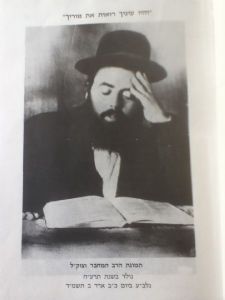A Short Tribute
Hacham Meir Yonah, son of Moussa Yonah, was born in 1917 in Djerba, Tunisia. The Yonah family's origins were in Yemen, but his grandfather, Hacham Zecharia Yonah, moved to Djerba while still a young man and eventually became renowned as one of Djerba's great kabbalists. His son, Moussa, was a merchant and mohel.
Hacham Meir Yonah studied Torah with Hacham Mekiketz Didi, Hacham Mekiketz Sheli, Hacham Haim Houri, Hacham Rachamim Hai Hayuta Hacohen, and Hacham Ozipha Cohen. At the age of 19, he moved to from Djerba to Gabès, where he was ordained and officiated as rabbi. Two years later, he married Misha Haddad and moved with her to the town of Douz, where he officiated as rabbi and served as shochet.
In 1943, at the age of 26, he left Tunisia with his family for Marseille, France, with the intention of immigrating to the Land of Israel. In Marseille he served as a rabbi, though not officially. In 1950, Hacham Meir Yonah immigrated to Israel, settling in the Pardes Hannah immigrant camp. He eventually officiated as the rabbi of Ramat Ishai – Beit She'arim.
Hacham Meir Yonah was among those who lay the foundation stone of the town of Migdal HaEmek. After its founding, Hacham Meir Yonah moved to Migdal HaEmek with his family, serving as its first rabbi for 31 years, and standing at the helm of its religious council for 26 years pro bono.
Hacham Meir Yonah passed away on 22 Adar Bet, 5744 (1983).
He authored several books, including Mi VaMi – a commentary on the Passover Haggadah, and Beit Meir – a collection of Responsa and original commentary on the Talmud and Bible.
